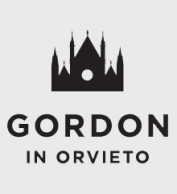STILLPOINT Archive: last updated 08/23/2007
IPERSON: IPOD, TECHNOLOGY, AND PERSONHOOD
by Bruce Herman, Professor of Art
Gordon College Convocation--February 26, 2007
Apple has got its finger on the pulse of our culture--but they aren't just selling technology; they're selling a certain kind of constructed identity. But if you're a constructed identity, are you, indeed, free? This notion of an "invented self" is the outcome of at least a century and a half of what has come to be called individualism--a culture geared toward personal and entirely independent choices.
But if you can construct your own identity, are you really a person? Isn't it true that I'm not really a person until I'm connected to some other person? There has to be self and other; there has to be dialogue; there has to be relationship for there to be personhood. And isn't personhood itself, from a Christian point of view, grounded in God--our God Who is, in fact, not just one person; not a solo-flight God, but a God in three persons?
This is a great mystery, and I'm not going to unpack the Trinity this morning, but let me just say that in the very nature of our Creator there is relationship; there is community. If God is real and if the Trinity is true, there has to be, at the core of human experience, otherness; there has to be self and other. You can't love yourself until you love your neighbor. You can't even see yourself-you don't really even exist-outside of relationship. The independent self is an illusion, a fiction. You don't exist for yourself; you exist for the other. In a strange, mysterious way, God has modeled this for us--He has actually emptied Himself for us, as St. Paul tells us in Philippians 2. That's how you love your neighbor.
Listen to Bruce Herman's full presentation (you will need iTunes free media player to launch presentation)
NEW CLASSICS MINOR BEGINS
Guided by the vision of philosophy professor Malcolm Reid, several departments have recently crafted a classics minor, drawing on existing offerings in history, philosophy and English literature, and including first and second year courses in Latin. The minor, and especially the Latin language component, has been requested for some time by students majoring in history, philosophy and English, who hope to pursue graduate studies in the fields of ancient and medieval history and literature. To complete the minor, students will take a total of six courses, four in the Latin language and two from a selection of ancient history, literature and philosophy. In their fourth semester of Latin language, students will read texts in Latin relating to their fields, allowing them to encounter firsthand documents pertaining to their areas of interest. Assistant professor of English Graeme Bird, whose Ph.D. is from Harvard in classical languages and literature, will be the coordinator for the minor.
GORDON IN ORVIETO ADDS HISTORY INITIATIVE
During the spring semester of 2008, history faculty Jennifer Hevelone-Harper, Tal Howard and English and history faculty Agnes Howard will offer three courses at the Gordon in Orvieto program on transitions in Christian history, with topics ranging from medieval spirituality to the modern-day ecumenical movement. Hevelone-Harper will teach Christianity in Medieval Italy. The Howards will team-teach a locally relevant version of Christianity and the Modern World, with emphasis on Catholic-Protestant ecumenism. Agnes Howard will also teach a course titled Women, Family, and Religion in the Early Modern Era. Along with John Skillen's Orvieto-program course, Cultural History of the Renaissance, 16 credits of history will be available that semester, allowing interested students to earn a minor in history.
Find out more about Gordon in Orvieto at www.gordon.edu/inorvieto
ARTICULATING FAITH AND ECONOMICS
Nineteen years ago Gordon College economists, in collaboration with the Association of Christian Economists, began publishing the review Faith & Economics. With the release of the Spring/Fall 2006 double issue, Stephen Smith and Bruce Webb, professors of economics and business at Gordon, concluded nearly two decades of editing the journal. Under their leadership the journal has thrived and helped spark significant scholarly effort by Christian economists. Webb's article "Is There Value-Added in Christian Scholarship? The Case of Unemployment" appeared in the most recent edition.
NEW DIRECTOR OF CHURCH RELATIONS NAMED
Robert Whittet, M.Div., has accepted new responsibilities as director of church relations. He will continue with his primary faculty position as associate professor of youth ministries but will also assist the College with building networks among churches and pastors. This work will build on his successful endeavors to support professional development for local youth workers and pastors. Last November, for instance, more than 140 persons attended the 2006 Symposium on Youth Ministry, sponsored by Whittet and Gordon's Center for Student Leadership. "Having served in pastoral ministry for many years, this new position gives me a chance to put that experience to work, building connections between the College and congregations and their leadership throughout New England," Whittet says.
FACULTY FORUM LECTURE SERIES
Faculty Forum meets bimonthly in Jenks Library. Dwight Tshudy, chemistry, writes, "As the College grows, it is increasingly difficult to know all the other members of the academic community. Faculty Forum is an opportunity for Gordon faculty (and others on and off campus) to come together to learn from one another. We talk about our research and other interests in an informal and collegial atmosphere. The Forum has a long history at Gordon, and it continues to evolve as Gordon changes and grows." Spring 2007 presentations included:
 gordon.edu.
gordon.edu. SARGENT ON POINT
December 22, 2006, Provost Mark Sargent was interviewed on the National Public Radio (NPR) series On Point. The subject was the recent Hollywood film The Nativity Story. Sargent joined the interview (which featured director Catherine Hardwicke) and provided a Christian reaction to the film as well as discussed how the nativity has been portrayed in other notable films.
NPR's OnPoint: www.onpointradio.org
Read More... Faculty Publications, Performances and Presentations


